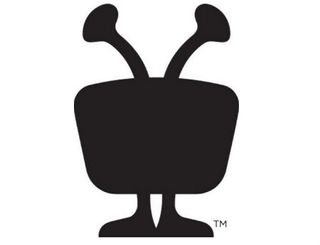Comcast Looks to Possibly Re-Instate Remote DVR Recording Feature on X1 with Latest Patent Appeal Wins

UPDATE: On Wednesday, the Patent Trial and Appeals Board invalidated Patent No. 8,578,413.
Comcast received another minor victory in its broad-reaching patent war with TiVo, with the Patent Trial and Appeals Board (PTAB) invalidating another TiVo patent.
However, a bigger win for Comcast might be in store for down the road, with the PTAB set to issue a more influential ruling later this week. That decision could ultimately enable Comcast to turn back “on” a remote DVR recording feature that the cable operator disabled 11 months ago, after the International Trade Commission (ITC) ruled against the company.
Related: Comcast Gets Two More TiVo Patents Invalidated
TiVo and its Rovi division have filed numerous lawsuits covering over a dozen patents, in myriad venues, against Comcast, attempting to make the cable operator pay licensing fees on technologies used in its X1 video platform. Comcast has been appealing each of these patents with the PTAB, trying to invalidate them one by one.
On Monday, the PTAB invalidated Rovi patent No. 8,566,871, which is tied to a TV programming guide feature. This patent was part of Rovi’s first lawsuit, and the ITC already ruled in Comcast’s favor on it late last year.
Related: Comcast Pulls Remote DVR Scheduling Feature From Stream App
Multichannel Newsletter
The smarter way to stay on top of the multichannel video marketplace. Sign up below.
Notably, ITC did rule last November in Rovi’s favor on two patents related to remote DVR recording—No. 8,006,263 and 8,578,413. Comcast subsequently removed the remote DVR recording feature in its X1 platform, as it moved on with its legal fight. This was a crucial TiVo victory, sources close to the company told Multichannel News: the more features Comcast is forced to disable, the more likely it is that the cable company will settle.
However, in September, the PTAB invalidated one of the two remote-recording patents that Rovi received favorable ITC rulings on—No. ‘263. The PTAB is set to rule on the other one, ‘413, later this week. An individual close to Comcast said that a favorable ruling could ultimately enable the operator to re-instate the remote DVR recording feature.
TiVo reps, meanwhile, noted that Comcast would still have to clear a major legal hurdle before restoring the feature. Comcast, they said, would first need to convert its win at the PTAB level--should that happen--to a victory in its circuit court appeal of the ITC ruling..
Asked for comment, Comcast issued only a statement responding to the invalidation of patent No. ‘871: “We are pleased that the Patent Office agrees with us that all of the claims in the Rovi patent asserted against Comcast are invalid,” the cable operator said.
TiVo responded with this statement: “Today's decision does not have any material impact on the broader reality that Comcast has been found in violation of Rovi patents on remote record technology by the ITC and will not be able to add this feature back into the platform.
"We disagree with the PTAB ruling and are optimistic about our appeal options, but more central to our dispute with Comcast are the positive rulings we've received from the ITC which have caused Comcast to remove features as well as future decisions we expect on additional patents in the coming months. We remain committed to take the necessary legal actions to ensure Comcast renews its long-standing license to fairly compensate Rovi for the use of our intellectual property, just as hundreds of other media and entertainment leaders do.”
An invalidation of '413, and subsequent re-introduction of remote DVR recording on X1, would be a major blow to Rovi's legal strategy. However, it's unlikely that the technology company would quit its battle with Comcast.
TiVo has patent licensing agreements in place with every major U.S pay TV operator. But Comcast hasn’t paid TiVo royalties since its last agreement expired in April 2016. And TiVo, which saw its patent litigation costs increase to $5.6 million in the second quarter, says it it’s not going to quit trying to chase down the No. 1 U.S. cable operator until it pays up.
“It would be untenable to let someone free ride when rest of the industry is paid,” an individual close to the company’s legal team told MCN last month.
Daniel Frankel is the managing editor of Next TV, an internet publishing vertical focused on the business of video streaming. A Los Angeles-based writer and editor who has covered the media and technology industries for more than two decades, Daniel has worked on staff for publications including E! Online, Electronic Media, Mediaweek, Variety, paidContent and GigaOm. You can start living a healthier life with greater wealth and prosperity by following Daniel on Twitter today!

